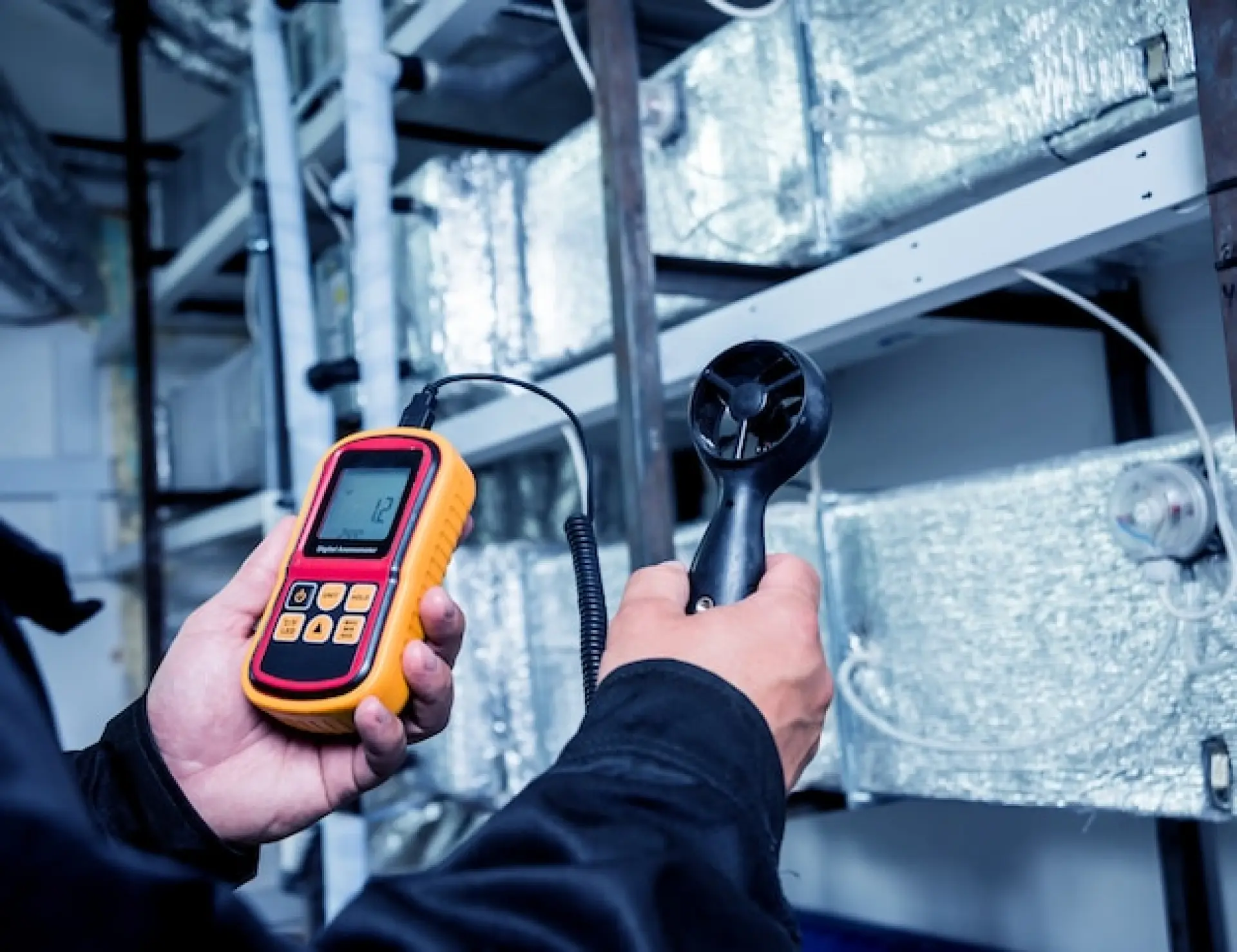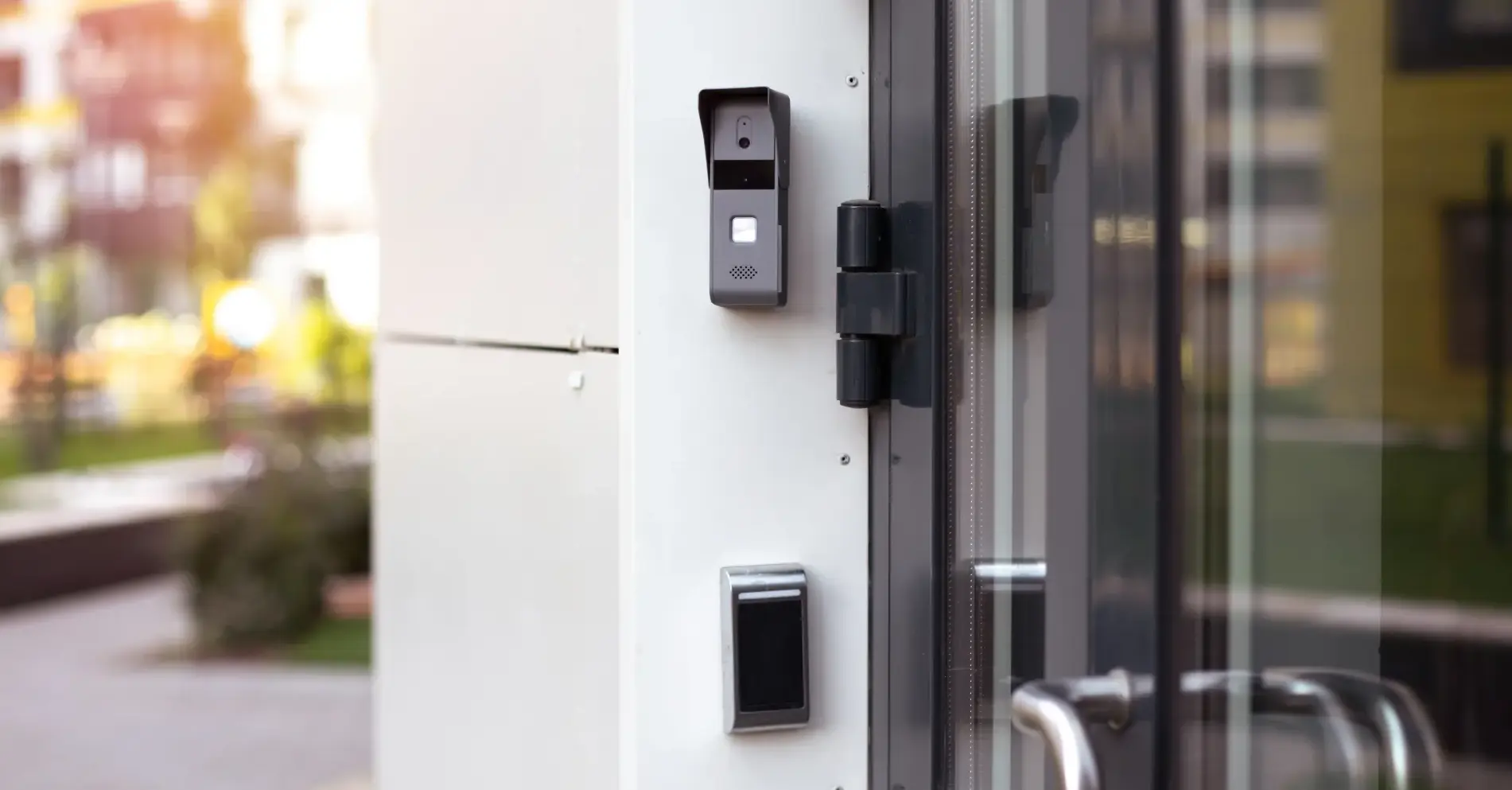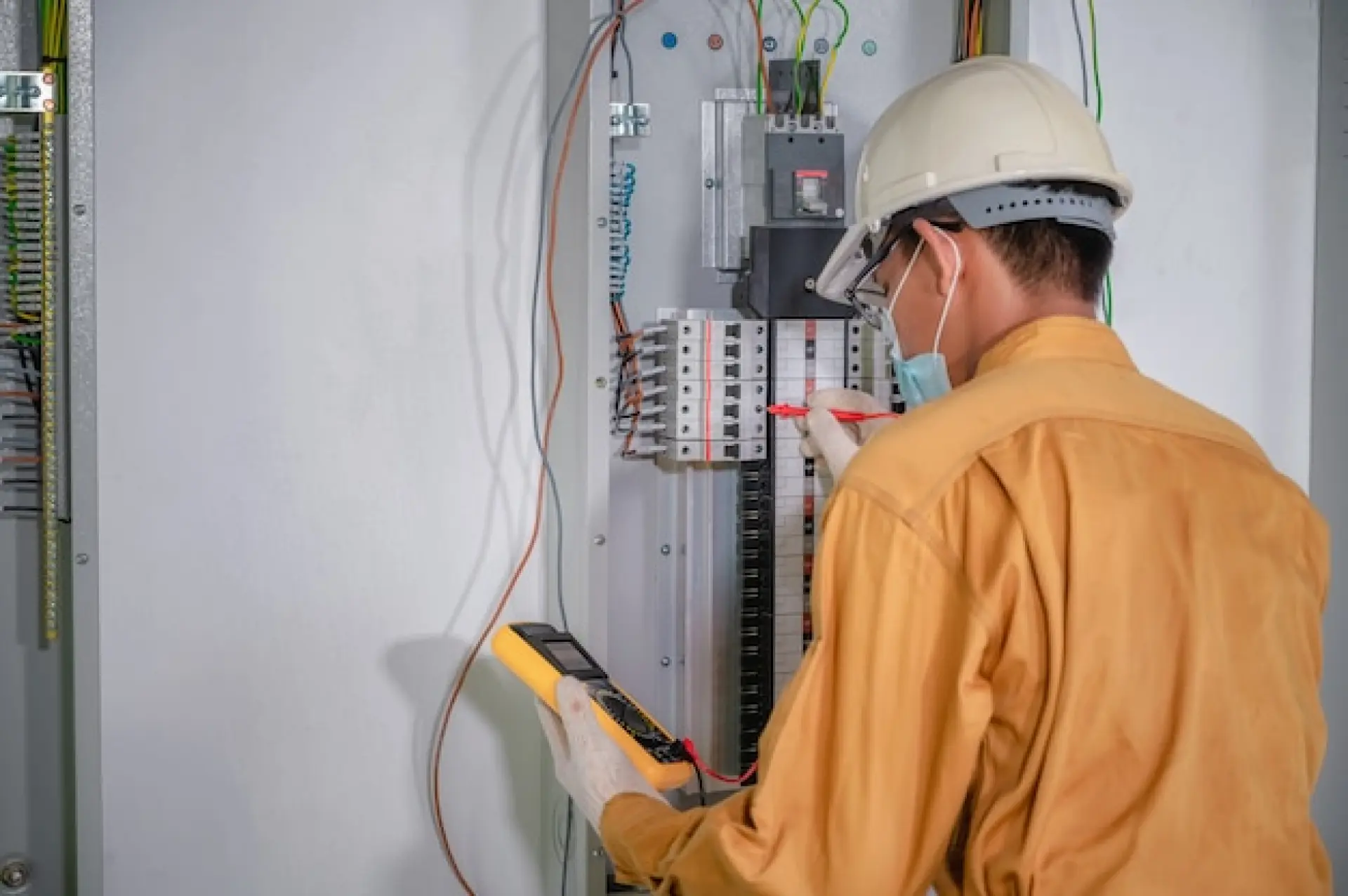Learn about the common types of electrical testing for homes and businesses. From PAT to RCD testing, we cover the essential tests that help ensure safety, reliability, and compliance with UK regulations.
Periodic Inspection and Testing (EICR)
A Periodic Inspection and Testing, often referred to as an Electrical Installation Condition Report (EICR), is one of the most essential types of electrical testing. It involves a detailed assessment of the entire electrical installation within a property.
The process checks wiring, circuits, sockets, fuse boxes, and other components to identify potential risks such as overheating, poor connections, or insulation faults. An EICR helps ensure that electrical systems remain safe to use and compliant with safety standards and UK regulations.
Businesses are usually required to carry out an EICR more frequently than homes, depending on the type of property and the risks involved. For example, workplaces, rental properties, and public buildings often require testing every five years, while some higher-risk environments may need it sooner.
The report produced provides vital information, highlighting issues that require immediate action, recommendations for improvements, and guidance on maintaining electrical safety.
Portable Appliance Testing (PAT Testing)
Portable Appliance Testing (PAT) is designed to ensure that electrical appliances remain safe to use. This type of electrical test is especially important in offices, factories, workshops, and rental properties where portable equipment and appliances are used regularly.
The testing process involves both a visual inspection and a series of electrical tests to identify faulty wiring, damaged plugs, or insulation resistance issues. Appliances such as computers, kettles, printers, power tools, and extension leads are commonly tested.
The frequency of PAT testing depends on the type of equipment, how often it is used, and the environment in which it operates. High-risk appliances may require annual testing, while low-risk office equipment may be tested less often.
Keeping a record of PAT tests is essential for compliance with workplace health and safety regulations. By ensuring that appliances are safe, PAT testing helps reduce the risk of fire, electric shock, and costly breakdowns.

PAT testing is crucial in high-risk environments such as factories, workshops, and construction sites where portable tools and equipment are frequently moved and exposed to wear and tear.
In office environments, it helps maintain the safety of everyday devices such as computers, printers, and kitchen appliances. The frequency of testing depends on the type of equipment and its usage conditions, with some high-risk items requiring annual inspections.
A record of PAT tests should be maintained to demonstrate compliance with safety regulations. Visual inspections by users, combined with periodic professional testing, ensure that faults are identified early, preventing costly repairs and accidents.
In addition to safety benefits, PAT testing can help businesses comply with insurance requirements and workplace health and safety regulations, reducing liability in case of electrical-related incidents.
Residual Current Device (RCD) Testing
Residual Current Devices (RCDs) are safety devices that disconnect electricity within milliseconds if a fault is detected. RCD testing ensures that these devices are functioning correctly, helping to protect people from electric shocks and preventing electrical fires.
The test simulates a fault in the system, checking whether the device trips within the required time. In homes, it’s recommended to test RCDs every three months using the built-in test button. In workplaces and industrial sites, professional RCD testing should be conducted at least every six months.
If an RCD is slow to respond or fails to trip, it must be replaced immediately to maintain safety. Regular RCD testing is essential in both residential and commercial electrical systems.
Earth Fault Loop Impedance Testing
Earth Fault Loop Impedance Testing measures how effectively a circuit will disconnect when a fault occurs. It is a vital test for assessing whether protective devices such as circuit breakers and fuses will operate quickly enough to prevent injury or damage.
A high impedance reading could mean poor earthing, faulty wiring, or inadequate circuit protection. This type of test is particularly important in properties with high electrical demand, such as hospitals, manufacturing plants, and data centres.
By ensuring that circuits will trip correctly, earth fault loop impedance testing helps to reduce fire risk, equipment damage, and potential electrocution. It is usually carried out during installation, as part of an EICR, and whenever modifications are made to the electrical system.

This type of testing is essential in environments where electrical reliability is critical, such as hospitals, data centres, and manufacturing plants.
Electrical faults in these settings can lead to equipment failures, production downtime, or serious safety hazards.
By measuring the resistance in the fault loop, professionals can determine whether a circuit will disconnect in the event of an electrical fault, minimising the risk of electrocution or fire.
The test should be carried out as part of routine maintenance and whenever new electrical installations or modifications are made.
Regular earth fault loop impedance testing not only enhances safety but also helps businesses comply with workplace safety regulations and insurance requirements. Neglecting this test could lead to undetected faults that may cause significant electrical failures or legal consequences.
Insulation Resistance Testing
Insulation resistance testing checks the integrity of wiring insulation to make sure electricity cannot leak into unwanted paths. The test applies a high voltage to a circuit and measures resistance levels.
Low resistance indicates that the insulation may have broken down due to moisture, mechanical damage, or ageing. This can cause short circuits, equipment failures, or even electrical fires if left undetected.
Insulation resistance testing is carried out in both domestic homes and business properties to ensure reliability and compliance with safety regulations. It is one of the most effective ways to identify hidden electrical faults before they escalate into costly repairs.
Continuity Testing
Continuity testing checks that conductors and protective circuits within an electrical installation are complete and unbroken. This is a simple but essential test that confirms all parts of the system are connected correctly and capable of carrying current safely.
It is often performed during installation or after repairs to ensure that wiring has been carried out properly. Continuity testing also helps to identify loose connections, which can increase resistance, generate heat, and create fire hazards.
Visual Inspections
Not all electrical testing requires specialised equipment. A visual inspection, when carried out by a qualified electrician, can identify obvious issues such as damaged wiring, overheating sockets, exposed conductors, or overloaded circuits.
Although it is not a substitute for more detailed electrical tests, a visual inspection is an important first step in ensuring safety. Businesses and landlords are often required to carry out periodic visual inspections alongside more formal tests.
Why Electrical Testing is Essential
Electrical testing plays a crucial role in ensuring that electrical systems are safe, reliable, and compliant with UK regulations. Without regular checks, undetected faults could lead to power failures, costly repairs, or even fires.
Testing is also vital for compliance with workplace safety standards and insurance requirements. For businesses, demonstrating that electrical tests have been conducted and records maintained can help reduce liability in the event of an incident.
For homeowners, regular testing ensures peace of mind, making sure that electrical systems remain safe for everyday use.
Common Types of Electrical Testing:Conclusion
Different types of electrical testing – from insulation resistance testing to RCD checks – are essential for identifying risks, ensuring compliance, and protecting people and property. Whether in homes, workplaces, or large industrial facilities, electrical tests are a critical part of maintaining safe and reliable systems.
Are you looking for electrical testing in Preston, Blackpool or Chorley? There are no hidden surprises or unexpected costs when it comes to electrical testing. We believe in transparency and provide fixed-price testing services.






